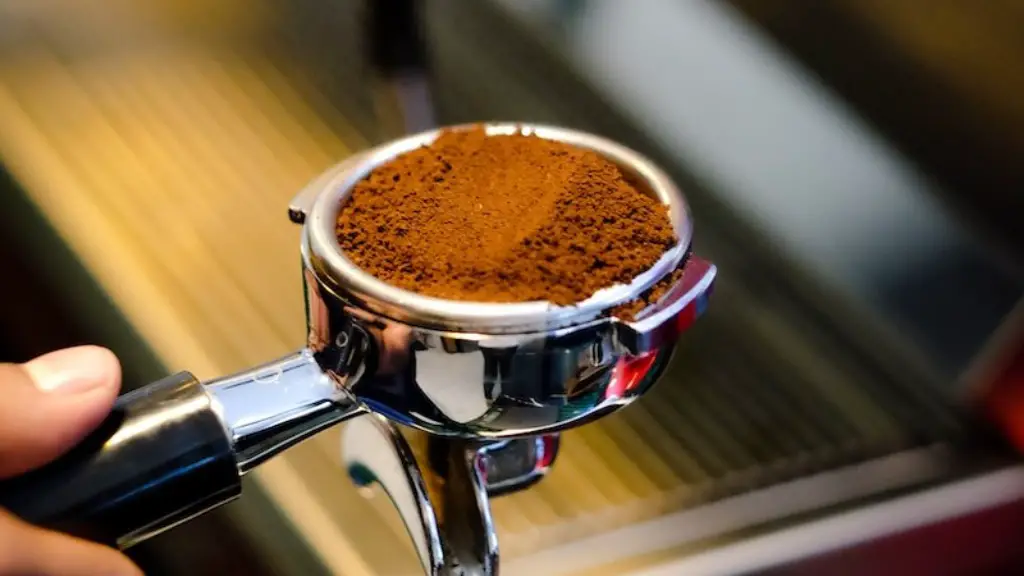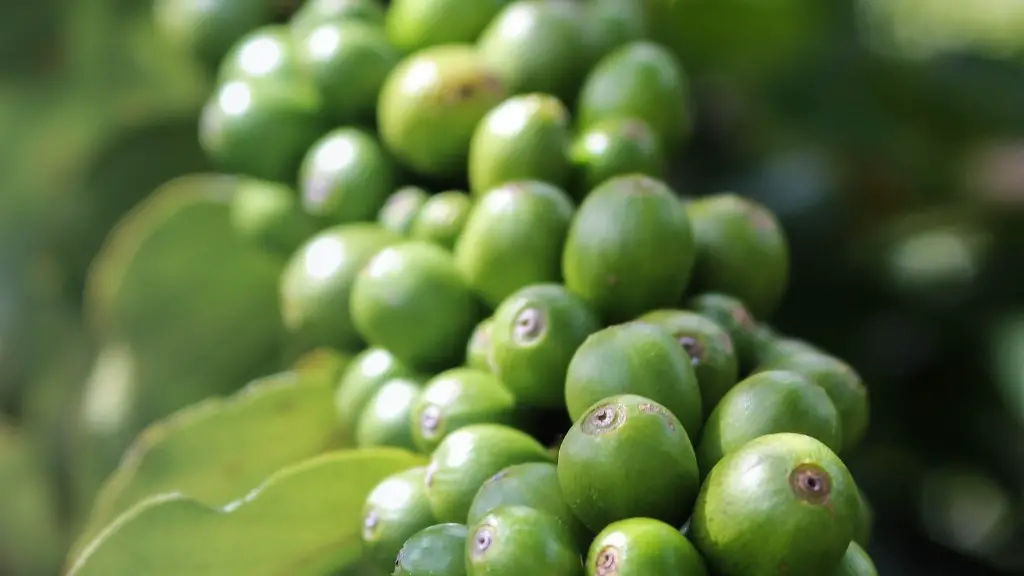Gastritis is an uncomfortable and painful condition where the inner lining of the stomach becomes inflamed. It is often symptomatic of a variety of conditions, including infection, stress, alcohol use and the use of nonsteroidal anti-inflammatory drugs (NSAIDs). Generally speaking, when someone experiences gastritis, eating and drinking can become quite challenging. That said, it is important to determine whether or not drinking coffee with gastritis is a safe and wise choice.
Coffee, specifically caffeinated coffee, is known to irritate the stomach. If a person with gastritis drinks coffee, it worsens the symptoms. The stomach becomes more acidic, leading to further inflammation and pain. Coffee is also known to reduce the absorption of minerals and medication, making them less effective. Additionally, coffee is a stimulant, and this can cause stress on the body that can lead to further exacerbation of gastritis symptoms.
Research has also shown that regular consumption of caffeine could lead to an increased risk of gastric issues in the long run. It is believed that caffeine triggers the production of gastric acid, which has a negative effect on an individual’s gastrointestinal function. As a result, those with gastritis may need to consider cutting back on their consumption or avoiding coffee altogether.
On the other hand, it is important to note that there are some studies that suggest that drinking coffee may actually have a positive effect on those with gastritis. Some research has suggested that coffee may reduce the risk of developing certain forms of gastric cancer. The same research has also found that coffee can also help to reduce inflammation and improve digestion.
It is important to keep in mind that coffee should not be used as a treatment for gastritis and that it should only be consumed in moderation. Despite the potential benefits of drinking coffee in moderation, it is still important to speak with your doctor or healthcare provider before making any changes to your diet. They can assess your individual situation and advise you on the best course of action.
Symptoms & Causes
The main symptoms of gastritis include nausea and vomiting, abdominal pain, bloating, and loss of appetite. One may also experience bloody vomit or stools, dizziness, sweating, and fever depending on the cause of their gastritis. In some cases, one may also experience sharp pains in the upper abdomen when eating or drinking.
Gastritis can be caused by a variety of factors, including infection, stress, alcohol use, and the use of certain medications. It can also be caused by an autoimmune disorder, such as Crohn’s disease or ulcerative colitis. Certain foods, such as spicy and acidic foods, may also contribute to the development of gastritis.
It is also important to note that gastritis can be a symptom of a more serious condition, such as a stomach ulcer or stomach cancer. If one experiences any of the above symptoms, it is important to speak to a doctor or healthcare provider in order to rule out any of these conditions.
Dietary Considerations
The best dietary approach for those with gastritis is to avoid any foods or drinks that are known to irritate the stomach. This includes caffeine, dairy products, citrus fruits, spicy foods, and alcohol. Additionally, it is important to consume smaller meals more frequently, as this can help to ease some of the discomfort associated with gastritis.
Consuming plenty of fruits and vegetables is important for managing symptoms. Along with this, one may want to consider incorporating probiotic-rich foods into their diet, such as live-culture yogurt and fermented foods. Probiotics are believed to help support the growth of beneficial bacteria in the gut, which can help to regulate digestion.
It is also important to stay hydrated when one has gastritis. Having plenty of fluids on hand can help to reduce symptoms such as nausea and vomiting. Water is the best choice, but one may also consider drinking herbal teas or decaffeinated green tea if desired.
Herbal Remedies
Herbal remedies can be an effective strategy for managing gastritis symptoms. Some herbs that may be helpful include ginger, peppermint, licorice, aloe vera, and dandelion. These herbs can be consumed in various forms, such as teas, tinctures, or capsules.
It is important to speak with a healthcare provider before using any herbal remedies as some of these herbs may interact with other medications or have other side effects. Additionally, a healthcare provider can advise one on the best dosage and provide more information on any potential interactions or side effects that one needs to be aware of.
Medication & Treatment
In some cases, a doctor may prescribe medication to help ease symptoms and limit damage to the stomach lining. This may include antacids, H2 blockers, proton pump inhibitors, or antibiotics depending on the underlying cause of one’s gastritis. A doctor may also recommend eliminating certain trigger foods or drinks, such as alcohol and caffeine.
In severe cases, surgery may be necessary to correct any damage that has been done to the stomach lining. Surgery is typically only recommended if medication, dietary changes, and other treatments are not successful in alleviating symptoms. A healthcare provider can provide more information and advise on whether or not surgery is necessary.
Lifestyle Changes
Along with medication and dietary changes, making some lifestyle changes can help to manage gastritis symptoms. Avoiding alcohol and caffeine, as well as smoking, can help to reduce symptoms. Additionally, managing stress levels and getting enough sleep are important, as these can have a direct impact on one’s overall health and wellbeing.
Regular exercise is also beneficial for managing gastritis symptoms. Even just a short walk each day can help to reduce stress and can help to support digestion. It is important to keep in mind that one should speak to a doctor before beginning any new exercise regimen.
Prevention & Self Care
Certain dietary and lifestyle changes can help to prevent gastritis and reduce the risk of developing symptoms. Avoiding alcohol and other trigger foods, such as spicy and acidic foods, is important. Additionally, managing stress levels, getting plenty of sleep, and avoiding smoking are important for prevention.
Self-care strategies, such as yoga and meditation, can also be beneficial for preventing and managing gastritis. These strategies can help to reduce stress, which can have a positive effect on one’s overall health, including the digestive system.
If one experiences symptoms of gastritis, it is important to speak with a doctor or healthcare provider in order to determine the best course of action. As each individual’s case is unique, speaking with a healthcare provider can help to determine the best approach for managing symptoms and preventing gastritis in the future.





